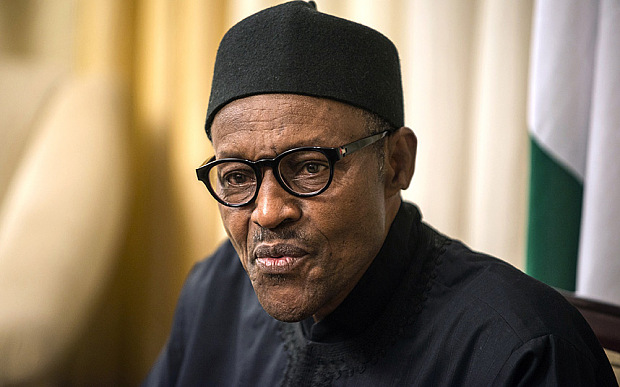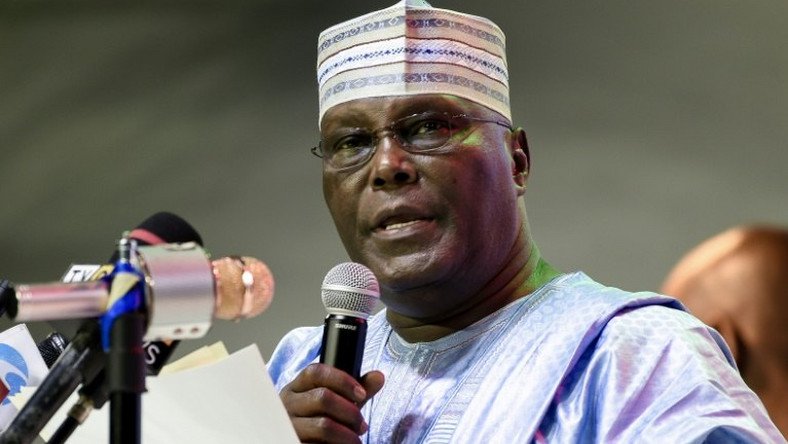• Rejects re-ordered election sequence for 2019
• PDP, UPP condemn refusal to sign legislation
President Muhammadu Buhari yesterday disclosed the withholding of assent to the Electoral Act Amendment Bill 2018, heightening tension in the political drama that could determine the outcome of next year’s general election.The National Assembly had on February 14, 2018 passed the amendment, which re-ordered the sequence of the election, making the National Assembly first and the presidential last. It argued that the move was done to boost democracy.
Buhari’s letter, which was read on the floor of the upper chamber by Senate President Bukola Saraki, noted that the sequence is contrary to the constitutional provision that accords full autonomy to the Independent National Electoral Commission (INEC).Some legislators who criticised the bill, as passed by the Senate, are currently facing disciplinary action before the chamber’s ethics committee for imputing false motives to the chamber’s intention.
The Senate, however, has not dropped any hint on its next line of action. Its spokesman, Aliu Sabi Abdullahi, told The Guardian that since the letter has been read to senators, it would form part of votes and proceedings to be approved today (Wednesday). “The Senate will subsequently decide on how to handle the letter and other related matters,” he said.
Captioned, “Presidential Decision To Withhold Assent To The Electoral Amendment Bill 2018”, Buhari’s letter states: “The amendment to the sequence of elections in Section 25 of the Principal Act may infringe upon the constitutionally guaranteed discretion of the Independent National Electoral Commission to organise, undertake and supervise elections provided in Section 15 (A) of the third statute to the constitution.”
It notes: “The amendment to Section 138 of the Principal Act to delete two crucial grounds upon which an election may be challenged by candidates unduly limits the rights of candidates in elections to a free and fair electoral review process.”
The third reason for rejecting the bill reads: “The amendment to Section 152 (3)-(5) of the Principal Act may raise constitutional issues over the competence of the National Assembly to legislate over local government elections.”It remains to be seen whether the two chambers of the National Assembly would be able to muster the required votes to override the president’s veto.
Section 58(5) of the constitution states: “Where the president withholds his assent and the bill is again passed by each House by two-thirds majority, the bill shall become law and the assent of the president shall not be required.”
The last time a veto was quashed was in 2000 when the National Assembly established the Niger Delta Development Commission (NDDC) Bill as an Act.When the Senate approved the sequence last month, its chamber turned rowdy, as senators, perceived to be Buhari loyalists, protested. Abdullahi Adamu (APC, Nasarawa), a former Nasarawa State governor and Chairman of the Northern Senators’ Forum, led the dissenters.
Faulting the adoption of the controversial election sequence clause, they claimed the inclusion of Section 25 (1) was targeted at President Buhari. They contended that the action of the National Assembly breached the constitution, which they claimed empowered only INEC to fix dates for elections. They also alleged that the process was rushed to achieve predetermined motives.
“Considering the strategic importance of the bill, it does not need to be rushed. So many members of the committee did not sign. We need to know why they did not. I believe that the content of the bill is not fair. We need to be fair. Why the rush? I will not be part of it,” Adamu said.
But in a separate briefing, Senator Suleiman Nazif (APC, Bauchi), alongside Senate spokesman, Aliu Sabi Abdullahi, countered the dissenters. He displayed a copy of the report bearing his signature. He also dismissed the insinuation that the report targeted Buhari.
Nazif said: “The sequence of election came from the House of Representatives. The Senate only adopted what the House passed. I signed my signature on the report. I am not aware if the sequence of the election is targeted at somebody. I did my job as chairman of the committee on INEC.”
Abdullahi said: “As spokesman of the Senate, I will not say something bad about the procedure adopted by the House of Representatives. I am not in the House of Representatives. I can only speak for the Senate. I cannot answer the question on who and who are against the bill we passed. The senators who said that are entitled to their own opinion.”
The conference committee had explained that the new election sequence would ensure every candidate is elected on merit, disallowing a bandwagon effect.Nazif said: “For the avoidance of doubt, this bill with the inclusion of section 25 (1), which makes provision for a sequence of election different from the one earlier rolled out by INEC, has not in any way violated any provisions of the laws governing the operations of the electoral body.” Opposition political parties, however, expressed support for the National Assembly, yesterday, urging it to override the president’s veto.
The Peoples Democratic Party (PDP) condemned Buhari’s refusal to give assent to the legislation, stressing: “As a party, we are not afraid of the 2019 general elections because we know that Nigerians have already rejected President Buhari and his dysfunctional All Progressives Congress.“We know that with the support of Nigerians, any candidate that emerges on our platform ahead of 2019 will clinically defeat President Buhari at the polls and lead our nation back to the path of progress, national cohesion and a vibrant economy.”
The National Chairman, United Progressive Party (UPP), Chief Chekwas Okorie, said: “Withholding assent to this bill smacks of fear of losing the 2019 presidential election as well as the fear of his (Buhari) party not benefiting from the bandwagon effect of a possible early victory if the presidential election came first.
“If the APC and President Buhari were confident that the record of their performance was impressive as they have often claimed, there should be no reason his fear should be expressed in the manner of withholding assent to a bill that holds very strong promise to deepen and develop our democracy.”
In a statement yesterday, Adamu warned of the consequences of a strained relationship between the executive and legislative arms of government. “Unless they act in tandem, good governance would become unattainable. And, of course, the welfare of the people would suffer grievously,” he said.
According to him, “My only crime considered heinous by the leadership of the Senate is that I cautioned against the increasing show of disrespect to the person and the office of the president of the federal republic.”On alleged plan to suspend him, he said: “I would not be surprised if such an extreme form of punishment is being contemplated. In the history of mankind, dissent, as a matter of principle, has always been punished rather than rewarded.”
He added: “If the intention is to gag or intimidate me, I am afraid it would not be worth the effort. Neither adversary nor adversity can force me to abandon my resolve, as a matter of personal honour and principle, to always speak the truth and defend the truth.”
Source: Guardian













